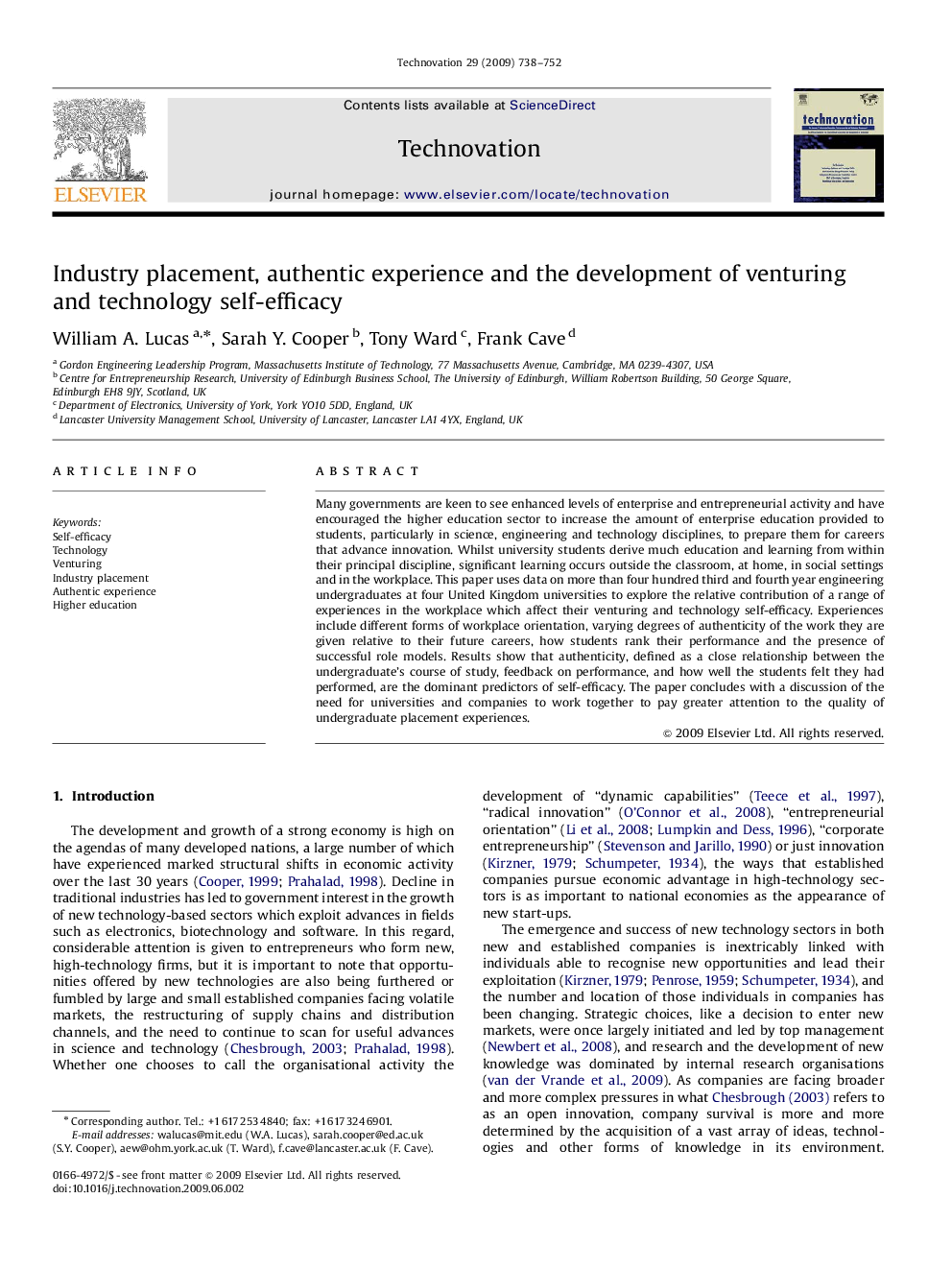| Article ID | Journal | Published Year | Pages | File Type |
|---|---|---|---|---|
| 1022345 | Technovation | 2009 | 15 Pages |
Many governments are keen to see enhanced levels of enterprise and entrepreneurial activity and have encouraged the higher education sector to increase the amount of enterprise education provided to students, particularly in science, engineering and technology disciplines, to prepare them for careers that advance innovation. Whilst university students derive much education and learning from within their principal discipline, significant learning occurs outside the classroom, at home, in social settings and in the workplace. This paper uses data on more than four hundred third and fourth year engineering undergraduates at four United Kingdom universities to explore the relative contribution of a range of experiences in the workplace which affect their venturing and technology self-efficacy. Experiences include different forms of workplace orientation, varying degrees of authenticity of the work they are given relative to their future careers, how students rank their performance and the presence of successful role models. Results show that authenticity, defined as a close relationship between the undergraduate's course of study, feedback on performance, and how well the students felt they had performed, are the dominant predictors of self-efficacy. The paper concludes with a discussion of the need for universities and companies to work together to pay greater attention to the quality of undergraduate placement experiences.
